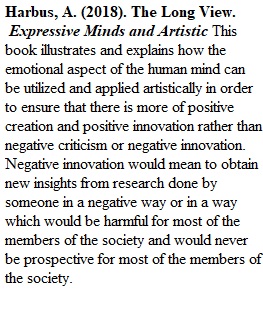


Q Topic 2: Annotating a Working Bibliography For this discussion, you are asked to share at least TWO sources for your Senior Capstone Project that you will include in your annotated working bibliography. LIST the sources alphabetically in APA style, SUMMARIZE the nature of the information, and DESCRIBE how each source fits in with the scope of your project. Here is a sample entry: Fairclough, N. (2001) Language and power. Harlow, England: Pearson Limited. This book (updated from the 1989 edition) describes and inspires an interdisciplinary critical approach to language studies in terms of theory and practice. The basic argument of the book is that all language forms and uses have embedded ideologies, embedded notions of power and hierarchy. Because these ideas are so deeply embedded in the language, speakers do not question them, and so perpetuate the status quo. Fairclough offers in depth examples and applications from communication material of Britain’s Thatcher administration. I will use Fairclough’s work in my paper to situate my own research in the tradition of CLS/CDA (critical language studies/critical discourse analysis). If you need a refresher on how to research and write an annotated bibliography, UMUC's library has an excellent tutorial here that includes examples of annotations. Please post your initial response to this discussion prompt by 11:59 p.m. Eastern Time on Wednesday, changing the title of your post to include your name and your project's proposed topic. Then, respond to the initial posts of at least two other students by 11:59 p.m. Eastern Time on Saturday. Continue your conversations through the end of the course week.
View Related Questions